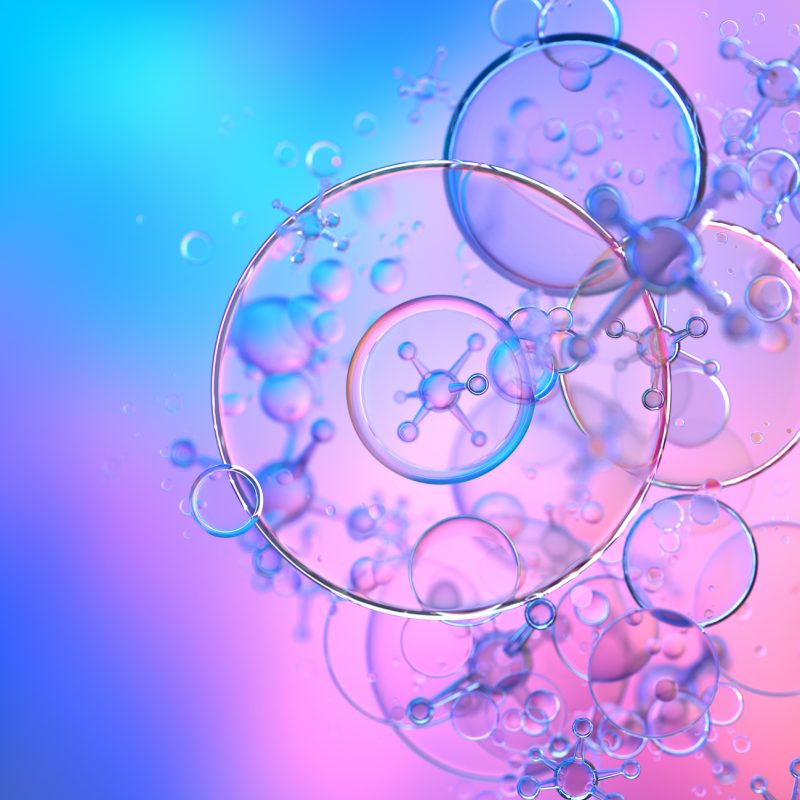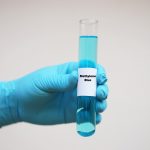
Hydrogen, the smallest yet most potent molecule in the biochemical world, now seems to hold the promise of revolutionizing both health and fitness arenas. In this article, we will explore the science behind hydrogen’s powerful antioxidant/anti-inflammatory properties as well as its purported role in reducing fatigue, enhancing endurance, optimizing cellular energy, and accelerating post-workout recovery. We will also touch on the potentially deleterious side effects of which to remain aware before delving into the use of gaseous/aqueous hydrogen.
The Small but Mighty Molecule
Whether obtained through gas-enhanced inhalation, dietary supplements, or specially treated water solutions, hydrogen recently began proving itself as a convincing strategy for performance enhancement, not only for elite athletes but also in exercise physiology and general medicine/wellbeing. Hydrogen has demonstrated the ability to boost exercise capacity in both animal and human studies.
Scientists believe this benefit stems from the molecule’s antioxidant and anti-inflammatory properties; some feel it relates more to a shifting of the body’s anabolic hormones. Consumption of hydrogen-rich water can alter circulating levels of blood glucose and insulin, most likely brought on by enhanced expression of fibroblast growth factor 21 (FGF21), a metabolic hormone known for boosting the body’s response to insulin and glucose clearance. One hypothesis that has gained traction links these effects with better energy utilization and exercise performance.
Hydrogen Water Defined
The chemical formula for water, H2O, acknowledges its makeup of 2 hydrogen atoms and 1 oxygen atom; hydrogen water, as the name implies, simply contains additional molecules of hydrogen. The concept originated many years ago in Japan, where individuals prepared what they referred to as a shin’nooru solution. Manufacturers create this solution by adding hydrogen tablets to water, or using specialized devices that infuse the water with hydrogen gas.
“Water already contains hydrogen, but hydrogen water is made by bubbling pure hydrogen gas into water,” says Gill Tietz, an adjunct chemistry professor at Wentworth Institute of Technology in Boston. “It can also be made with electrolysis, which uses electricity to split water into hydrogen and oxygen.”
Athletic Evidence
One research study revealed that hydration with 1.5 L/day of hydrogen-rich water (containing between 0.92–1.02 mM of hydrogen) significantly reduced the blood lactate levels of male soccer players. The additional hydrogen also led to improvements in the typically observed decline of muscle function, which often accompanies bouts of extreme exercise.
Understanding Oxidative Stress
When an athlete engages in intense exercise, the body naturally generates substances called reactive species, chemicals that result from the metabolism of oxygen. Reactive species and antioxidants typically remain in homeostasis within the body. However, when this balance gets thrown off-course, and the reactive species exceeds the antioxidants, oxidative stress occurs in the body.
Exercise-induced oxidative stress can cause the following symptoms ~
- Muscle fatigue/damage
- Inflammation
- Delayed-onset muscle soreness (DOMS)
Since oxidative stress damages the mitochondria (the cell’s energy-producing powerhouse) and hampers high-performance abilities of the body, athletes have begun turning to hydrogen-infused water products to increase their antioxidant response and boost the body’s aerobic and anaerobic responses.
Supporting Post-Workout Recovery
Intense workouts often leave behind damaged muscle tissue, a result of oxidative stress. Studies show that molecular hydrogen helps mitigate this effect. By reducing harmful free radicals, hydrogen water actually attenuates inflammation, thereby hastening the muscle tissues’ ability to repair.
As all athletes know, delayed onset muscle soreness (DOMS) often wreaks havoc with back-to-back training days. Since hydrogen water reduces the severity of DOMS, individuals often experience less muscle soreness/stiffness the day following an intense training session, leaving them feeling ready to face the next day’s gym challenges.
Boosting Energy and Endurance
As mentioned above, mitochondria have control over fueling the body’s energy. However, during high-intensity exercise, they also have the capacity to produce oxidative stress as a byproduct, which can negatively affect an athlete’s stamina. Molecular hydrogen protects mitochondria from this damage, allowing them to function optimally, enabling the athlete to power through tough workouts.
When it comes to deriving the most benefit from molecular hydrogen-infused water, the timing of consumption does matter to a certain degree. Consider adding hydrogen water in the following ways ~
- After a Workout: Drinking hydrogen water within 30-60 minutes after completing a workout can help reduce inflammation and foster recovery. This enables the individual to face the next workout replenished and refreshed with a minimum of soreness.
- Before Exercising: Drinking hydrogen water prior to a workout can help increase endurance, allowing for a longer bout of exercise without fatiguing quite as quickly. By also helping the body handle workouts more efficiently, an athlete may feel like he can push himself a bit further.
- Everyday Drinking: Drinking hydrogen-enhanced water throughout the day provides quality hydration and supports overall health. The more consistently one adheres to this commitment, the more benefits will appear over time.
Benefits Beyond Ingestion
One may derive benefits from hydrogen-enhanced water in ways that do not include oral consumption; some have suggested that bathing in it confers measurable value as well. A few studies have shown that hydrogen water helps the skin, particularly for those battling the chronic inflammatory condition of psoriasis. One small study noted that eight weeks of bathing in hydrogen water led to significant skin improvements for these patients, with a quarter of the participants seeing at least a 75% improvement.
The Potential Side Effects of Hydrogen Water
The majority of evidence accumulated to date suggests that hydrogen-infused water does not pose overt or severe health ramifications with regular use, yielding no known toxic effects. However, like any novel “wellness” product, one ought to consider and understand the side effects of hydrogen water, even those rare or mild occurrences. Some users have reported occasional discomfort, especially when consuming large volumes of water.
Below we list a few of the more commonly reported side effects ~
- mild gastrointestinal discomfort
- bloating
- nausea
- diarrhea
These symptoms may occur when the user tries hydrogen water for the first time and/or starts off ingesting large amounts fairly quickly.
In rare cases, some people report mild fatigue or a bit of lightheadedness when they first start drinking hydrogen-rich water. This temporary effect simply reflects the body’s way of adjusting to changes in serum antioxidant levels or metabolism.
Although scientific data and evidence remain scarce, the theoretical possibility exists that the antioxidant properties inherent in molecular hydrogen could interact with prescription medications that also modulate oxidative stress, such as chemotherapy drugs or other immunosuppressants. Individuals can consult with a physician or pharmacist to make sure nothing will interfere with a current course of medical treatment.
Hydrogen gas is produced naturally by gut bacteria in response to the consumption of certain foods. Introducing additional hydrogen molecules directly could potentially exacerbate gas/bloating in some individuals, especially those living with irritable bowel syndrome (IBS) or gut dysbiosis.
Inhalation Therapy
A big concern for athletes who consume large quantities of hydrogen water stems from the very real chance of inducing hyponatremia, a condition of low sodium levels in the bloodstream. Excessive fluid overconsumption can dilute sodium levels to the point of inducing fatigue, mental confusion, headache, and diminished athletic performance.
To that end, individuals have begun experimenting with gaseous hydrogen. Hydrogen inhalation therapy involves breathing hydrogen gas directly through a nasal cannula or mask. Since this method of delivery allows for absorption through the lungs, the hydrogen fuses into the bloodstream, brain, and sensitive tissues more rapidly than when ingested. This method also ensures a higher and more consistent concentration of molecular hydrogen entering the body as compared to drinking hydrogen water, making it better suited for therapeutic use. According to Dr. Youn Sung Lee, a hydrogen therapy researcher, one single inhalation session can deliver the equivalent of 144 grams of hydrogen, which far exceeds the 1.6 milligrams per liter found in most hydrogen water products. This makes inhalation ideal for those seeking stronger therapeutic effects, such as when managing chronic conditions like arthritis or supporting recovery from heavy workouts.
One research study evaluated the effects of a week’s worth of gaseous hydrogen inhalation on exercise performance s. The subjects, both male and female, ranged in age from 22-23 years. Participants received either gaseous 4 % hydrogen or room air via a 20-minute, 1x/day inhalation for 7 days.
Breathing 4% hydrogen for 20 minutes per day resulted in elevating the subjects’ peak running velocity, in some cases by as much as 4.2%, compared to the control group who inhaled regular room air. Inhalation of gaseous hydrogen, therefore, appears to show ergogenic properties in healthy individuals.
Increasing Cognitive Properties
Therapeutic molecular hydrogen has been reported to confer neuroprotective effects on the body, most likely due to its antioxidant properties. However, the effects of hydrogen on cognitive impairment due to age-related brain alterations and the underlying mechanisms therein have not garnered much research attention. One study sought to investigate the efficacy of drinking hydrogen water in an effort to prevent or slow spatial memory decline and age-related brain alterations, using the mouse model known as senescence-accelerated prone mouse 8 (SAMP8); this breed typically exhibits early aging symptoms, including declining learning ability and memory.
Treatment with hydrogen water for 30 days prevented age-related declines in cognitive ability, and also aligned with increased levels of serotonin in the brain, as well as an uptick in serum antioxidant activity. In addition, drinking hydrogen water for 18 weeks inhibited neurodegeneration within the hippocampus region of the brain, while the control group exhibited a dramatic loss of neurons.
The interplay of multiple mechanisms can lead to the development of later-in-life memory impairment, including age-related alterations in the central nervous system. This may contribute to neuronal cell damage, owing to an increase in reactive oxygen species (ROS). As discussed previously, when ROS formation outpaces the antioxidant defense system, problems ensue. As humans who remain fit longer can expect or at least hope for an increased life span, the need to minimize the development of cognitive defects in the elderly population remains vital.
Recent evidence suggests that molecular hydrogen potentially protects the central nervous system by eliminating ROS. More recently, hydrogen-infused drinking water reduced the dopaminergic neuronal loss in the mouse model of Parkinson’s disease. Further research will aid in the understanding of these processes and ideally secure the ability to capitalize on hydrogen water as a therapeutic treatment.
Weight Training and Power Output
In addition to its many other accolades, recent studies on hydrogen-rich water have explored the potential impact on athletic performance related to resistance training, power production, and muscular strength.
One research study addressed the effects of hydrogen water supplementation — before, during, and after resistance training — on muscular endurance performance and neuromuscular status, culling the subjects’ perceptual responses after a 48-hour recovery period. At the conclusion of 8 days of this intermittent supplementation, scientists noted significant improvement in the muscular endurance performance of the subjects.
Another study conducted in 2019 found that consumption of hydrogen-rich water by athletic subjects resulted in a substantial drop in serum lactate levels during exercise. These findings seem to suggest that hydrogen-rich water might play a key role in optimizing respiratory function, increasing performance output, and reducing fatigue during intense activities.
While the exact mechanisms behind hydrogen water’s role in enhancing strength and power still need further research data, scientists already believe it may once again hinge on those all-important antioxidant properties.
Improving the Quality of Life for Cancer Patients
Moving from the gym to the medical setting, hydrogen-enhanced water solutions show promise in improving the quality of life for individuals undergoing cancer treatments, especially radiation. Some of the more common side effects of radiation therapy include ~
- Fatigue
- Hair loss
- Headaches
- Soreness/skin problems in the treated area
- Nausea
One study involving 49 liver cancer patients showed how consumption of hydrogen-rich water for 6 weeks during radiation therapy greatly improved the quality of life for these individuals. In particular, the water supplementation seemed to offset many of the negative effects of daily radiation treatments. Similarly, patients living with chronic kidney disease and undergoing dialysis showed improved renal function and less fatigue when regularly consuming hydrogen water.
Mitigating Metabolic Syndrome
A diagnosis of metabolic syndrome often leaves such individuals prone to developing heart disease, diabetes, and suffering a stroke. Metabolic syndrome occurs when 3 or more of the following symptoms present themselves concurrently ~
- Elevated triglyceride level
- Hyperglycemia (high blood sugar)
- Hypertension (high blood pressure
- A large waist circumference
- Low levels of high-density lipoprotein (HDL, or “good”) cholesterol
One study found that the above-mentioned markers of metabolic health improved for patients following a 24-week regimen of high-concentration hydrogen water supplementation. While medical professionals warn that hydrogen-enhanced solutions should not replace traditional treatment for metabolic syndrome, they could serve as a helpful adjuvant therapy.
While all of this data and anecdotal evidence indeed sounds promising, many of the studies we have outlined in this article only included a small number of subjects. “Research is still extremely limited,” says Kristen Carli, a Registered Dietitian and the owner of Camelback Nutrition and Wellness in Gilbert, Arizona. “Hydrogen water won’t hurt your health, but high-quality studies with large sample sizes and control groups, ideally that look at long-term effects, are needed to determine if hydrogen water truly offers a health benefit.”
Hydrogen water does get absorbed efficiently, which facilitates hydration at the cellular level. For athletes, especially, such consumption will not merely quench their thirst but also more effectively push nutrients and fluids into their muscles. Better hydration does not merely support recovery; it optimizes endurance and performance, making it a promising strategy for athletes or fitness enthusiasts looking to gain an edge during resistance training or competitions.
References
https://www.health.com/hydrogen-water-8606666
https://www.mensjournal.com/health-fitness/supercharge-your-workout-with-molecular-hydrogen
https://www.webmd.com/diet/hydrogen-water-health-benefits?ref=sanatorium.health
https://olympianwatertesting.com/the-impact-of-hydrogen-water-on-athletic-performance/
https://www.frontiersin.org/journals/physiology/articles/10.3389/fphys.2024.1458882/full
https://www.eliteckhydrogen.com/the-role-molecular-hydrogen-plays-in-fitness-and-sports/
https://h2medical.org/how-can-inhaling-hydrogen-improve-athletic-performance-.html
https://pmc.ncbi.nlm.nih.gov/articles/PMC6945053/






